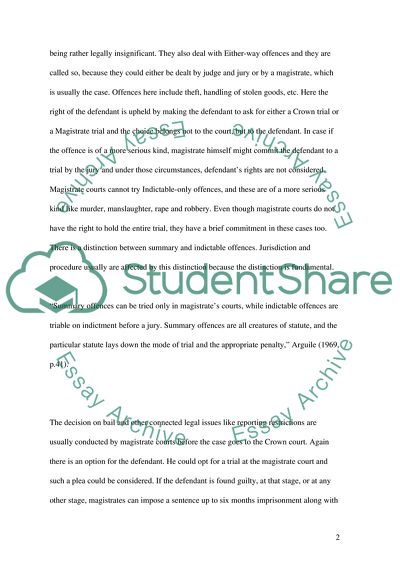Cite this document
(The Criminal Process in the UK Essay Example | Topics and Well Written Essays - 4000 words, n.d.)
The Criminal Process in the UK Essay Example | Topics and Well Written Essays - 4000 words. Retrieved from https://studentshare.org/law/1707464-to-what-extent-do-you-think-the-court-system-magistrates-and-crown-courts-ensures-a-fair-trial-fo-all-defendants
The Criminal Process in the UK Essay Example | Topics and Well Written Essays - 4000 words. Retrieved from https://studentshare.org/law/1707464-to-what-extent-do-you-think-the-court-system-magistrates-and-crown-courts-ensures-a-fair-trial-fo-all-defendants
(The Criminal Process in the UK Essay Example | Topics and Well Written Essays - 4000 Words)
The Criminal Process in the UK Essay Example | Topics and Well Written Essays - 4000 Words. https://studentshare.org/law/1707464-to-what-extent-do-you-think-the-court-system-magistrates-and-crown-courts-ensures-a-fair-trial-fo-all-defendants.
The Criminal Process in the UK Essay Example | Topics and Well Written Essays - 4000 Words. https://studentshare.org/law/1707464-to-what-extent-do-you-think-the-court-system-magistrates-and-crown-courts-ensures-a-fair-trial-fo-all-defendants.
“The Criminal Process in the UK Essay Example | Topics and Well Written Essays - 4000 Words”, n.d. https://studentshare.org/law/1707464-to-what-extent-do-you-think-the-court-system-magistrates-and-crown-courts-ensures-a-fair-trial-fo-all-defendants.


